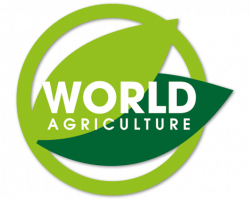Uganda Agrochemical dealers’ practises and interactions with farmers

Summary
The agricultural industry is an essential component of the Uganda economy and often struggles to obtain good advice through its existing national agricultural extension and research system. Agricultural dealers (agrodealers) are often the primary source of advice for farmers with a crop health problem, yet we have little practical information on agrodeal- ers’ background, their relationship to farmers and how they position themselves in the agrochemical industry. Through a questionnaire based study, 975 agrodealers were asked about their interactions with farmers, level of training, and knowledge of plant health problems and their role in the agrochemical industry. The majority of agrodealers entered the industry in order to help farmers and seed is the most important of the products stocked and sold in their stores. However, 14% had not received any training before opening their stores. Most agrodealers price their products according to trade and local market conditions and not by government guidelines. The vast majority of agrodealers already give farmers pest and disease advice, and would welcome further training to help their business develop. This study introduces the types of problems Ugandan agrodealers face. A competent recording and communication scheme between agrodealers, government and manufacturers is vital for the positive growth of the industry and should be used to enhance national food security.
Keywords: Agrodealer, social study, Uganda, UNADA, CABI Abbreviations: AGRA, Association for a Green Revolution in Africa; IFDC, International Fertiliser Development Centre; MAAIF, Ministry of Agriculture, Animal, Irrigation and Fisheries; NAADS, National Agricultural Advisory Services (Uganda); NGO, Non-Government Organisation; UNADA, Ugandan National AgroDealer Association; UBOS,Uganda Bureau of Statistics; USAID, U.S. Agency for International Development.
Introduction
Eighty per cent of the workforce in Uganda works in agriculture1. Despite this, over 50% of the population experience food shortages2.
Agricultural inputs are a means to increase agricultural productivity, and are used widely worldwide. The agricultural supply industry is firmly established in Uganda: approximately 2000 registered agrochemical dealers (agrodealers) currently operate and serve the farming community3.
They are often the first source of advice for farmers in countries with weak national agricultural extension and research systems. Their advice and knowledge directly affects farmers’ behaviour and therefore the country’s crop yields and food security.
The creation of a plant health system4 involves five actors each interacting in a proper manner. The farmer, extension worker, regulators, research bodies and the agrochemical supply trade all need to work in unison with appropriate connections to each other to create a strong environment for crop production.
There is the potential, however, that the agrodealers are ignored by the National Agricultural Advisory Services (NAADS) in action plans5 developed to create a dynamic new outlook for agricultural support.. This is common practice in public action plans. The integration of agrodealers into public agricultural initiatives has historically been slow for two main reasons.
Firstly agrodealers are often viewed with some suspicion by independent agriculturists and public services, who believe them to provide biased advice and promote the use of unnecessary and/or inappropriate products and generally to act in their own interests rather than that of the customer6.
Secondly, they are an extremely heterogeneous group in relation to their education, agricultural knowledge and economic situation, making it difficult to design policies that will benefit all agrodealers9. Historically studies on agricultural input supply have focused mainly on
the ecological, medical and socio- economic effects of chemicals on end users7,8,9. Recently, however, more studies have concentrated on the socio-economics of the dealers themselves investigating how they work within the agricultural input supply industry6,10. However, even the most basic of information has not previously been asked of agrochemical dealers in a systematic way, such as:
- I The level of training they have received in the past, and their future needs;
- I The range of chemicals they sell, and how they stock their shops;
- I Their perceived knowledge of plant pests and diseases;
- I Their relationships with farmers, the agrochemical industry, and policy makers;
Despite a recent study11 on the interactions between women farmers and agrodealers, there has been no attempt to garner information from the dealers themselves. Nevertheless, it is important to understand the perceived role of the agrochemical dealers in crop production from within the industry.
There is no legal obligation to have gained any qualifications to trade in agricultural chemicals, so it is hard to assess agrodealers without the help of an existing structure.
Half the agrodealers in Uganda are registered as members of The National Secretariat of the “Ugandan National AgroDealer Association” (UNADA).
This trade organisation is funded by the Alliance for a Green Revolution in Africa (AGRA) and the U.S. Agency for International Development (USAID) and it was members of UNADA who were the source of information for this study.
Methods
UNADA conducted monthly regional training sessions between Aug 2009 and Aug 2010 around Uganda, each attended by approximately 80 agrodealers.
Sessions were designed to help members respond to changing needs within the industry and featured training in business management, market development, on-farm demonstrations, radio and print advertising, trade fairs, advocacy and policy analysis updates, as well as market linkages and information on prices and products.
Study Design:
The questionnaire was devised by CABI and approved by UNADA staff and integrated as an exercise in the training course. Initially, UNADA staff based their training on the aims of the study.
Interviewees were given ample time to answer all the questions adequately and with assistance. The first 80 agrodealers in the UNADA training programme in August 2009 were used as a test sample.
Subsequently, three ambiguous questions were corrected to ensure the participants answered either “yes” or “no” and the previously ambiguous questions were not used in the overall data analysis.
Overall, 975 participants completed the questionnaire between August 2009 and August 2010.
Questionnaire design
Owing to its multiple aims, the questionnaire had 35 questions and participants were given half an hour to complete the study. The design of the questionnaire was based upon the model described in Bradburn et al.12.
Different formats were used for questions, depending on the information needed for analysis.
Certain questions had a marking system applied to them, listing their preferences, while others had a more direct approach, asking the agrodealers to fill in only one answer designed to categorise the way they viewed a particular aspect of their work (Table 1 gives an example).
At the end of the study, data were collated, inserted into an Excel spreadsheet (Microsoft Corporation) and analysed using single-variate analyses and summary statistics.
The Pearson’s Product Moment Correlation Coefficient was used for the measure of correlation between variables .
This statistical test is used as a measure of the strength of linear dependence between two variables.
Results
Demographics: The training covered 973 dealers, with an average age of 35.6 years (median = 33). The youngest participant was 14 years old, and the eldest, 71. The average number of years in practice was 4.1, with a median of 3 years.
One trainee was just starting out in the industry, whilst the greatest number of years of practice for any participant was 41 years.
Table 2 shows the reasons dealers joined the sector.
Products stocked in shop: The most commonly stocked product was seed, with 51% of the responses compared to 14% for both pesticide and herbicide, whilst 54% of the responses stated “Nematicide” as the “Least Important” product.
Frequency and choice of restock: Of the 925 responses, 46% bought their products monthly; 37% bought their products every week, and 12% every 6 months.
Daily and yearly restocking was infrequent (2% and 3% respectively).
Pricing of the products: Interviewees were also asked how they determined the price of their products.
Of the 960 respondents, 26.7% decided the price themselves, 10% used government guide prices, 44% based the price on the wholesale price and 18.9% observed other dealers prices.
Counterfeit chemicals: 96.5% of participants sold their chemicals in the original containers. 93% also thought counterfeit chemicals were a big problem in Uganda, and 84% were concerned that products they bought in the past had been counterfeit.
Time spent with customers: Of the 946 responses, 58% spent 5-10 minutes with customers, and 30% spent less than half an hour with clients. 12% spent over half an hour with customers.
Product payment: 96% of agrochemical sales at the shop were cash over the counter sales.
However, 27% of these gave temporary loans and extended credit to returning and known clients. Only 2% of agrodealers gave clients an official shop account, as recorded in their official sales ledger.
Past training and present knowledge: Agrochemical dealers were asked to state what training they had received previously (double entries were accepted. e.g. a dealer mighthave received a “Safe use and Handling of Chemicals” training as well as a “Product Knowledge” course in the past). Participants had attended 1053 training courses in total.
Of the 972 agrodealers in the study, 218 did not respond to the question study and 153 (14.5%) stated they had received no training (43% of these were from dealers who entered the agrochemical industry for economic reasons).
Fifty per cent of all training courses received were the “Safe use and Handling of Chemicals”. “Fertiliser Application”, “Agricultural Sciences”, “Business Management”, “Product Knowledge” and “Crop Protection” all featured in 1 to 6% of courses.
Official government training was the most frequent form of training, according to 41% of the interviewees, followed by Suppliers (30%).
Chemical products labels and leaflets given by suppliers were also seen as a good source of information by 49% of interviewees.
When asked if they knew how the chemicals they sold worked biologically, 70% stated “Yes”, 21% said that they knew “For most of them”, and only 9% said “No”.
Future training: 99% of all interviewees would like to be involved in training in the future. They would prefer NGO training (46% listed this as their preferred option), but 37% would want government training, and 17% would endorse a private company giving them training.
Future business model: When asked how they would like their business to grow, 40% of all interviewees listed the category “To Become More Knowledgeable” as the most important aspect. The least important for the growth of their business was “To Open More Stores” (32% of interviewees placing this in the Least Important category).
Customers’ demands: 46% of all agrodealers regularly get customers coming into their shop to demand a chemical by simply describing the problem on their crop.
A specific brand name is wanted by 39 % and 15% demand a group of chemicals (for example: a fungicide). Of clients who came into their shop 62 % came to buy chemicals, whilst 38% thought their customers came in to ask for advice and 61% of agrodealers said good advice was more important than the right chemical.
Table 3 summarises the advice and buying habits of agrodealer client farmers.
Discussion
As was stated earlier, there have been few studies of agrodealers, and our attempt to describe the demographics provided interesting results.
The average age of agrodealers is 35.6 y and those who join a family business form the youngest category.
Pearson’s test gives a medium strong correlation between the age of an agrodealer and his choice of profession. Indeed, their young age is to be expected if they start working early, as a helper, for their relative who owns the shop.
This is a traditional concept in African countries. It is, however, worrying, as they most likely have not received the same amount of training as the person who opened the shop.
The Agrodealers interviewed had practised for an average of 4.1 years. This could be due to (1) a high turnover rate in the industry, causing many agrodealers to close down their business and (2) that the Ugandan agrochemical industry is growing and young professionals have decided to join.
Those who joined the industry for professional reasons have the highest level of training. They are willing to stay in the industry once trained, or qualified.
Indeed, based on the correlation between “age” and “years of practice”, most young agrochemical dealers remain in the industry, particularly if academically, or professionally, trained.
Seed is the most important product stocked by agrodealers, presumably because of its constant use by farmers, as confirmed by the UB OS13.
Unsurprisingly, nematicides were the least popular product to be stocked, as appropriate types are not readily located and are expensive to use.
Also, nematodes, despite generally causing noticeable signs on the roots of plants, are little understood by the agricultural sector.
It is interesting that almost half (44%) of agrodealers chose their selling prices according to wholesalers’ prices, and only 8% use official government advice.
It is uncertain if this is an indication that local and national government could be engaging more with small agrodealer businesses.
It is within their mandate. The government, through the Crop Protection Department in the Ministry of Agriculture, Animal, Industry and Fisheries (MAAIF) is responsible for the regulation of agricultural inputs to ensure farmers get value for their money.
The government administration, through the chief commissioner of Agricultural inspection and the principal Agricultural Inspectorate, lacks funding and manpower to ensure proper engagement with agrochemical suppliers15.
However, it is apparent that the private industry has a firm grip on price regulation in Uganda. Most agrodealers (93%) realise there are serious problems caused by counterfeit chemicals, which are of unknown, generally foreign, provenance. This could explain the highly favourable statistic relating to the selling of chemicals in their original containers.
The fact that 84% were concerned that they had potentially bought some counterfeit chemicals in the past reinforces the importance of the problem. Accordingly, 85% of agrodealers believe that the agrochemical industry should be controlled by government, a statement of faith that public involvement could rid the industry of some of its most serious problems.
A joint Croplife, National Environment Management Authority and Ministry of Agriculture Workshop entitled the “Obsolete Stock/Empty Containers” was arranged in June 201214.
Agrodealers are generally the source of advice for most rural farmers. In this study, 98% of agrodealers gave plant pest and disease advice (61% thinking that the right advice was more important that the right chemical) and 97% gave health and safety advice related to the use of chemicals (50% had already followed a course on Safe Handling and Use of Pesticides).
Discussions between shop owner and customer must therefore consider aspects of the farmers’ fields and husbandry before a problem is understood and a solution found. Indeed, 46% of interviewees stated that customers simply describe the problem on their crop. Consequently, many agrodealers (80%) find themselves visiting customers’ fields in order to understand the problem at first hand.
A farmer’s crop health issues are complex. However, we find that 58% of agrodealers spend between 5 and 10 minutes with their clients, and only 12% of agrodealers spend over half an hour discussing and recommending solutions to a problem.
Based on farmer interviews at plant clinics in CABI’s Plantwise initiative15, advisors are encouraged to spend 15 minutes with a farmer in order to get all relevant information, before recommending a product.
However, a shop owner needs to see an adequate number of clients. He is unable to spend all day with one customer and visit his field to the detriment of other clients. Most of the products being sold are seed, so these transactions are relatively quick, by comparison with plant health problems.
Agrodealers’ jobs are also aided by the fact that customers sometimes bring affected plant samples, or know the type or even the brand of chemical needed, thereby making a proportion of the agrodealers management recommendations more appropriate and faster.
Seventy seven per cent of agrodealers have farmers returning to complain if the product sold did not have the desired effect. Farmers are therefore keen to let their agrodealer know if the product has not worked.
Recommendations and conclusions
This study reviews Ugandan agrodealers’ situation and interaction with their clients. This is a developing and complex industry. Agrodealers find themselves in a unique position: they need to possess a great deal of knowledge to help with their clients’ enquiries, but they also need to make a living.
There is a close relationship between farmers and agrodealers. Field visits are regularly arranged, and farmers will visit the agrodealer to let him know if the product has not worked. The frequency of the field trips might be small, but that they happen at all indicates that the agrochemical industry is a maturing one, developing services to meet the demands of the clients.
It would be interesting to find out what agrodealers offer their clients if the product has not worked, and this could be the subject of a future study.
A study of agrodealers’ knowledge of pests and diseases and the agrochemicals they sell would also be particularly relevant to plan development of an approved training programme, or qualification for agrodealers and their shops. For the moment, it seems international NGOs, such as UNADA or CropLife funded by AGRA and IFDC, are the only organisations committed to training agrodealers.
In Uganda, many agrodealers do not have the relevant licenses, mainly due to the limited infrastructure available for their approval and release16.
A focused study on the professional pathways for agrodealers would be very helpful and would highlight the problems in the existing infrastructure to improve support. In the UK, BASIS17 is an independent organisation set up to establish and assess standards in the pesticide industry and the professional competence of staff. A similar system could perhaps be implemented in future to enhance and manage Ugandan agrodealer professional standards.
This survey provides no information on the ownership structure of the agrodealer network. Although the majority of agrodealers understand the threat that counterfeit, or obsolete, chemicals constitute, they are still present within the agrochemical industry. The survey highlights this problem and raises questions of trading standards and the role of the major agrochemical companies in Uganda to control the flow of these illegal chemicals.
In Uganda, the link between agrodealers, government and the private industry is loose and uncoordinated. The agricultural inspectorate in Uganda should be promoting an environment where constructive and intensive dialogue between all relevant stakeholders is a regular occurrence. Liaison between these organisations is vital to ensure that agricultural and political benefits are fully recognised and accepted throughout the agrochemical industry.
Agrodealers play an unequivocally important role in agriculture. This survey provides basic information on their role and structure in Uganda. A next step would be to find out more about the industry, particularly as agricultural productivity and food security are such an important part of the wider political, economic and social politics.
References
1. Information on Uganda; Index Mundi (2012) http://www.indexmundi.com/uganda/
2. Summary report on Uganda Census of Agriculture (2008-2009); Uganda Bureau of Statistics, in collaboration with the Ministry of Agriculture, Animal Industries and Fisheries (MAAIF). Volume 1, December 2010
3. UNADA personal communication October 2010
4. Danielsen S., Centeno J., López J., Lezama L., Varela G., Castillo P., Narváez C., (2011) Innovations In Plant Health Services In Nicaragua: From Grassroots Experiment To A Systems Approach; Journal of International +Development, J. Int. Dev. Published online in Wiley Online Library, (wileyonlinelibrary.com) DOI: 10.1002/jid.1786
5. National Agricultural Advisory Services (NAADS) Phase I and Phase II programme, Uganda http://www.naads.or.ug/ (Accessed 07/11/2012)
6. Chinsinga B.; FAC Working Paper 31. Agrodealers, Subsidies and Rural Market Development in Malawi: A Political Economy Enquiry. Future Agricultures Consortium, Brighton, UK 2011
7. Frampton G., K., Jänsch S., Scott-Fordsmand J., J., Römbke J., van den Brink P. J.; Effects of pesticides on soil invertebrates in laboratory studies: A review and analysis using species sensitivity distributions. Environmental Toxicology and Chemistry, Volume 25, Issue 9, 2006
8. Pingali P., L., Roger P., A.; Impact of Pesticides on Farmer Health and the Rice
Environment (Natural Resource Management and Policy) Kluwer Academic Publishers, 1995; ISBN 10: 0792395220
9. Wilson C., Tisdell C.; why farmers continue to use pesticides despite environmental, health and sustainability costs. Ecological Economics, Volume 39, Issue 3, 2001
10. Odame, Hannington, Muange E.; "Can Agrodealers Deliver the Green Revolution in Kenya?" IDS Bulletin 42.4, 2011
11. Okello B., Paruzzolo S., Mehra R., Shetty A., Weiss E.; Agrodealerships in Western Kenya: How Promising for Agricultural Development and Women Farmers? International Center for Research on Women, 2012
12. Bradburn N.,M., Sudman S., Wansink B.; Asking Questions: The Definitive Guide to Questionnaire Design - For Market Research, Political Polls, and Social and Health Questionnaires (Research Methods for the Social Sciences); Jossey Bass Publishing, 2004, ISBN – 10: 078797088-3
13. Ugandan Bureaux Of Statistics 2012; Government of Uganda http://www.ubos.org/index.php?st=pagerela- tions&id=16&p=related%20pages:Demographi c%20Statistics (Accessed 13/02/2012)
14. Training report on Counterfeit and Illegal Pesticides Training in Uganda. June 2012 http://www.croplifeafrica.org/?module=pages &method=view&conf[page]=website_coun- tries_display&conf[id]=62 (Accessed 07/11/2012)
15. CABI Plantwise initiative. www.plantwise.org (accessed 28/11/2012)
16. UNADA Personal communication (October 2010)
17. BASIS (Registration) Ltd. Promoting Professional Standards http://www.basis- reg.com/about.aspx (Accessed 26/11/2012)
Download pdfFigures
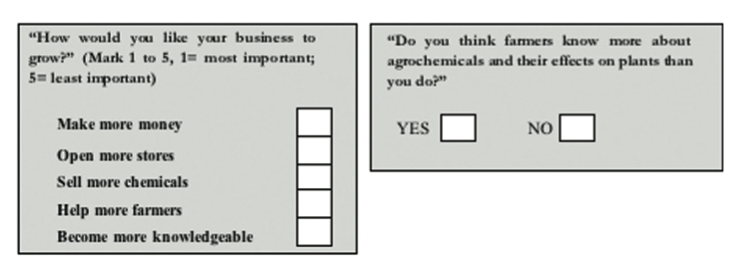
Table 1 Example of question format intended to elicit the dealer’s attitude to his business.
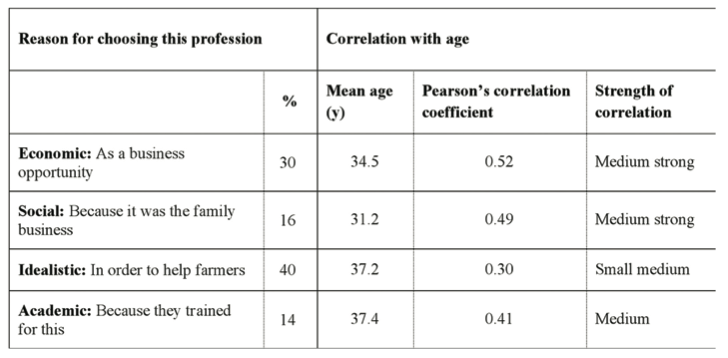
Table 2. Reason given by the 902 responding participants for entering the industry.
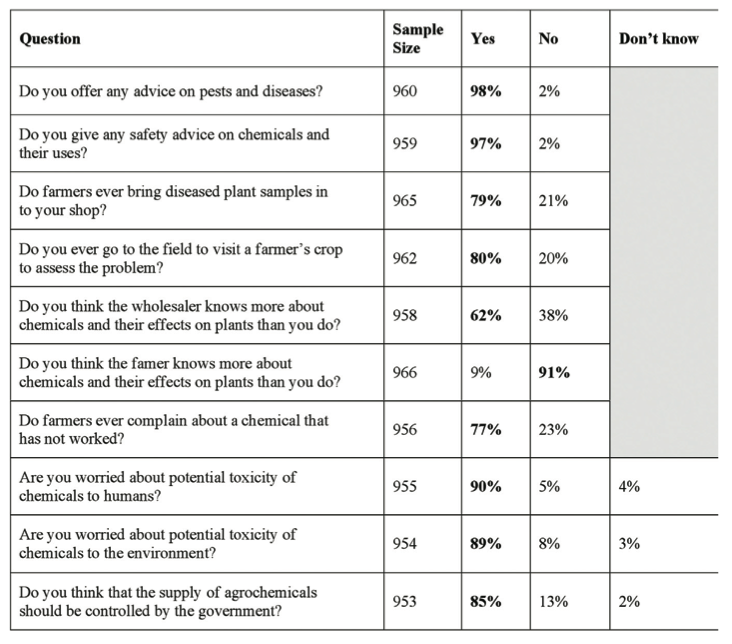
Table 3 Advisory role of agrodealers, customer buying habits and sat- isfaction
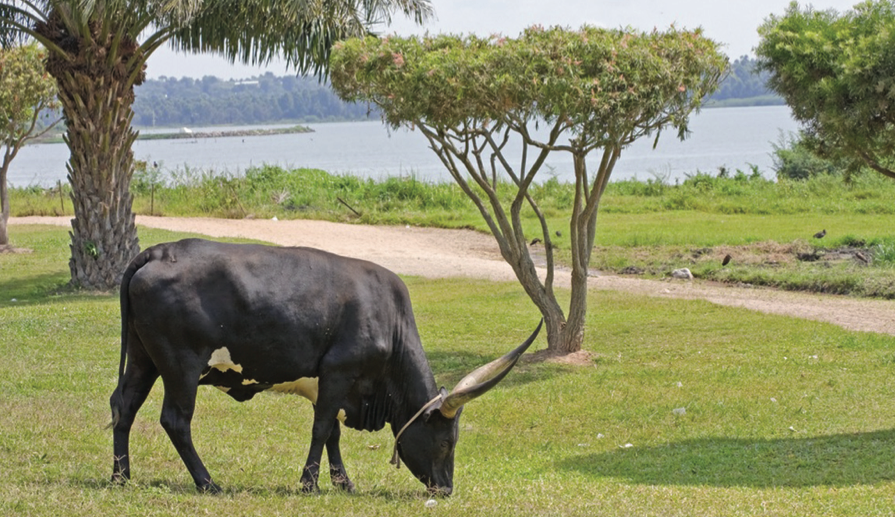
Grassland on the shore of Victoria Lake. Entebbe, Uganda.

